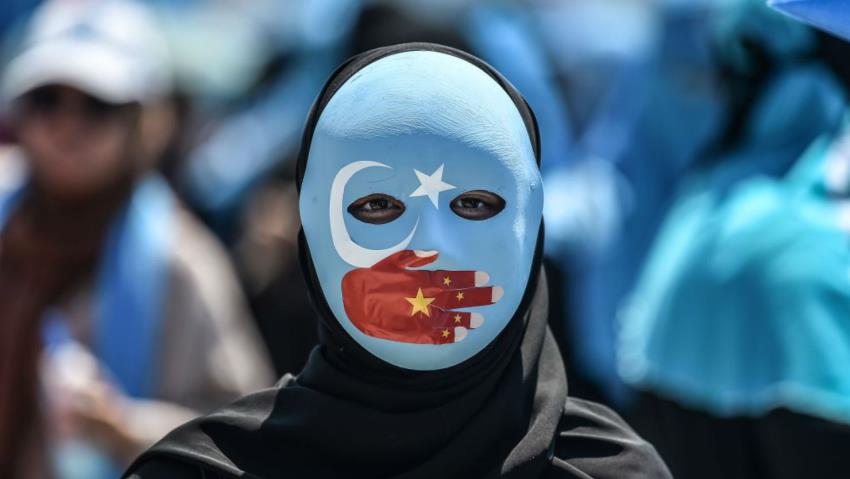Islamabad: Their Uighur wives vanished in 2017, swept up in a Chinese dragnet tackling Islamic extremism, now they’ve been released – but the Pakistani husbands left behind say freedom has come at a price: The women must prove their “adaptability to Chinese society”, and publicly sacrifice their religious ideals.
The group of around 40 women – all from the western Chinese province of Xinjiang and married to traders from neighbouring Pakistan— were among some one million people believed to be held in a network of internment camps that authorities downplay as “vocational education centres”.
But the men say their partners were forced into acts that are haram, or forbidden, to followers of Islam – both in the camps and now they’ve been freed.
My wife said she was forced to dance, wear revealing clothes, eat pork and drink alcohol in the camp. She now carries with her a book of guidelines, which features illustrations such as a mosque marked with a red cross, and a Chinese flag with a green tick
- An Uighur gemstone trader
“She said they had to eat pork and drink alcohol, something she still has to do,” one merchant, who recently visited his wife at her parents’ house in Xinjiang told AFP, on condition of anonymity.
“She was told that she had to satisfy the authorities that she no longer possesses radical thoughts if she does not want to go back,” he explained, adding that she had given up praying and the Quran had been replaced by books on China at his in-laws’ home.
Some of the traders, who traditionally leave their wives in Xinjiang for weeks or months at a time when they return home to conduct business, believe the women were taken to the camps because of their connection to Pakistan, which is an Islamic republic.
Former detainees have said they were held simply for following Islamic traditions, such as having a long beard or wearing a veil.
But with the detention centres, part of a security clampdown targeting Muslims including ethnic Uighurs, facing growing international condemnation and China pushing its economic relationship with Pakistan, authorities began slowly releasing the women two months ago.
Faiz Ullah Faraq, a spokesman for the government of Gilgit-Baltistan, the Pakistani region which borders Xinjiang, confirmed the “majority” have now been released.
AFP interviewed nine of the women’s husbands, who confirm their wives are free but cannot leave Xinjiang for three months, during which time they will be closely monitored.
“My wife said she was forced to dance, wear revealing clothes, eat pork and drink alcohol in the camp,” a gemstone trader said of the rules of release. He added that she now carries with her a book of guidelines, which features illustrations such as a mosque marked with a red cross, and a Chinese flag with a green tick.
